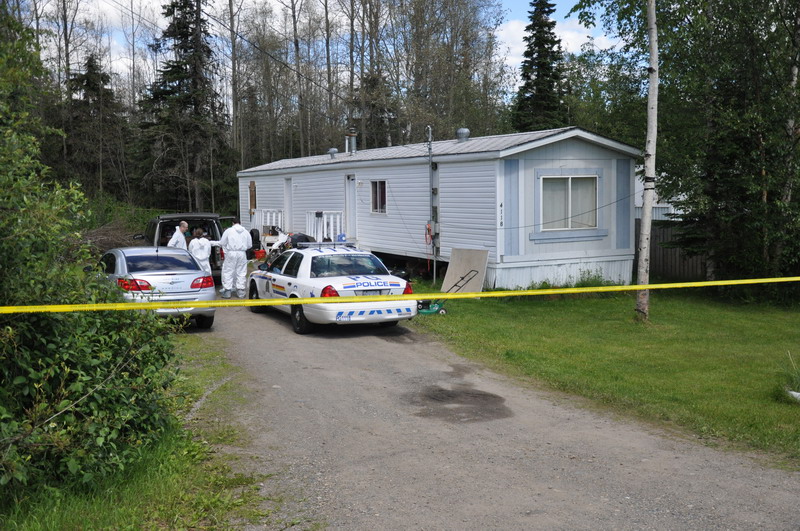British Columbia’s highest court has set aside murder convictions and ordered a new trial for three Prince George-area men after ruling the judge’s charge to the jury was disorganized and confusing.

In a unanimous decision released Thursday, a three-member panel of the B.C. Court of Appeal erased first-degree murder convictions for Lyle Baker and Dustin Lindgren, and a second-degree conviction for Kevin Zaporoski in the death of 22-year-old Jordan Reno in June 2012.
The decision says the victim’s bound body was found wrapped in plastic inside a box on Baker’s property north of Prince George.
The Crown alleged Reno was in conflict with several people involved in the Prince George drug scene.
The three men were arrested in 2015 and found guilty in June 2017.
In ordering the new trial, the Appeal Court says the trial judge’s final instructions to the jury were “defective” for failing to provide a “clear and logical” process for it to decide a verdict.
WATCH: (Aired Jan. 25, 2017) Gun violence not just contained to Vancouver

The Appeal Court decision also says the jury was incorrectly allowed to consider certain DNA and blood evidence when deciding the intent of the suspects.

Get daily National news
Justice David Frankel says the jury had a “formidable task” as it considered multiple forms of mostly circumstantial evidence.
“There were eleven possible verdicts amongst the three accused,” he wrote on behalf of the panel.
“It was critical that the trial judge properly instruct the jury to enable them to discharge their task.”
He says the organization of the charge failed to provide the jury with a proper framework to assess each of the accused’s alleged part in Reno’s murder. The ruling also examines the judge’s refusal to provide the jury with a written copy of the more than 100-page charge.
- Former prince Andrew ‘released under investigation’ 11 hours after arrest
- Former prince Andrew arrested on suspicion of misconduct in public office
- Tumbler Ridge school shooting victim set to hopefully return home soon from Vancouver hospital
- Shia LaBeouf arrested after fight during Mardi Gras in New Orleans
“Given the number of accused, the number of possible verdicts, the alternate routes to liability, and the fact that the instructions were provided only orally, it was of the utmost importance that the charge provide the jury with a clear and logical step-by-step process it could apply during its deliberations,” Frankel wrote.
“This it did not do.”
Evidence presented during the trial showed Reno had been severely beaten but forensic experts could not determine if he died of multiple blows to the head or suffocated due to the layers of plastic wrapped around his head.
The Crown presented blood and DNA evidence on clothing and on the walls of the trailer where Reno was attacked.
While Frankel agrees the spatter evidence could suggest multiple blows and an inference of intention to kill, he says DNA on clothing can’t offer the same consideration.
Several other grounds for appeal were also raised, including a concern about how quickly the oral charge was delivered. Frankel agreed with a Crown assessment that the pace was “fairly brisk,” but he ruled out further consideration because the appeal was allowed on other grounds.
A date for a new trial has not been set.







Comments
Comments closed.
Due to the sensitive and/or legal subject matter of some of the content on globalnews.ca, we reserve the ability to disable comments from time to time.
Please see our Commenting Policy for more.